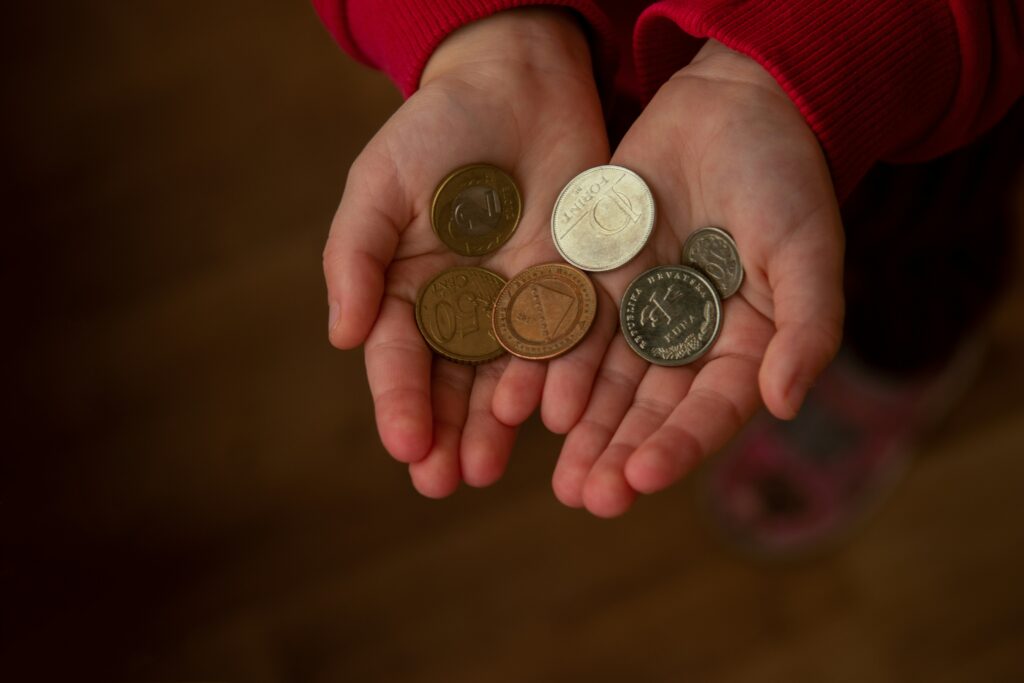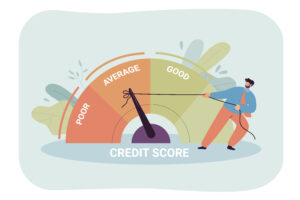Toddler Money Habits: Mine vs Ours – How 2-Year-Olds’ Behavior Shapes Financial Future
Toddler money habits begin forming much earlier than most parents realize. When your two-year-old grabs a toy and shouts “mine!” they’re not just being difficult—they’re displaying the first inklings of their future relationship with money. Understanding these early behavioral patterns can help parents shape their children’s financial future from the very beginning. The journey from toddler possessiveness to adult financial wisdom is complex, but research shows that the foundations of toddler money habits are laid in these crucial early years. For more expert insights on child development and financial education, check out our comprehensive financial blog that covers everything from toddler money habits to teenage financial literacy.
“Children’s early sharing behaviors predict their future financial decision-making patterns more accurately than any other developmental indicator.” – Child Development Research Institute
The concept of “mine” versus “ours” represents a critical cognitive milestone in toddler money habits development. When children learn to distinguish between what belongs to them and what belongs to others, they’re developing the neural pathways that will later govern their understanding of wealth, ownership, and resource allocation. This early stage of possessiveness isn’t negative—it’s actually a necessary step toward developing healthy financial boundaries and decision-making skills. If you’re interested in learning more about our approach to financial education, visit our about us page to understand our philosophy and methodology.
Research from leading child development experts shows that toddlers who demonstrate balanced sharing behaviors—able to both claim ownership and share when appropriate—tend to develop better financial management skills in adulthood. These early social interactions lay the groundwork for understanding concepts like saving, spending, investing, and charitable giving. The ability to delay gratification, a key component of toddler money habits, begins to develop around age two and is strongly influenced by how parents respond to their child’s possessive behaviors. To test your own financial knowledge, try our financial quiz and see how well you understand the concepts that will shape your child’s financial future.
Understanding these connections can help parents make informed decisions about how to guide their children’s early financial education. By recognizing the significance of these toddler behaviors, parents can create environments that nurture healthy toddler money habits from the earliest stages of development. For personalized financial planning services, explore our services page where we offer tailored solutions for families at every stage of their financial journey.
The science behind toddler behavior and future financial success is fascinating. Neurological studies show that the prefrontal cortex, responsible for decision-making and impulse control, undergoes significant development during the toddler years. This brain development directly impacts how children will later handle money, make financial decisions, and respond to economic opportunities and challenges. The neural connections formed during this period create the foundation for lifelong toddler money habits and attitudes. To help you plan for your child’s financial future, use our calculators designed to project education costs and savings needs.
“The prefrontal cortex development in toddlers is like laying the foundation for a financial skyscraper—get it right, and the structure will stand strong for a lifetime.” – Developmental Neuroscience Research Center
Early childhood experiences with sharing, taking turns, and delayed gratification all contribute to the development of executive function skills that are essential for financial success. When parents understand the connection between these toddler behaviors and future money habits, they can create intentional learning opportunities that build these crucial skills. The key is recognizing that every interaction, every sharing opportunity, and every lesson about ownership contributes to the child’s future financial identity. For quick, engaging financial tips and stories, browse our web stories that simplify complex financial concepts into digestible content.

The Science Behind Toddler Money Habits Development
The remarkable connection between how two-year-olds handle sharing and their future financial success has been documented in numerous longitudinal studies. These research projects have followed children from toddlerhood through adulthood, tracking their behavioral patterns and financial outcomes. The results consistently show that early sharing behaviors are powerful predictors of future financial health and decision-making abilities. According to research from the University of Cambridge, money habits are formed by age seven, making toddler years critically important for establishing healthy financial foundations. If you have questions about implementing these strategies with your child, feel free to contact us for personalized guidance.
“Toddler sharing patterns are like crystal balls for future financial behavior—they reveal more about adult money management than any other early childhood indicator.” – Financial Psychology Research Institute
Children who demonstrate healthy sharing behaviors at age two—able to both assert ownership and share appropriately—tend to develop better budgeting skills, higher savings rates, and more balanced approaches to spending and investing in adulthood. These early social interactions create neural pathways that later govern financial decision-making, risk assessment, and resource allocation. The ability to understand that resources can be both “mine” and “ours” forms the cognitive foundation for understanding complex financial concepts like investment, taxation, and charitable giving. The Consumer Financial Protection Bureau offers excellent resources on how to build these financial foundations from an early age.
Neuroimaging studies reveal that the same brain regions activated during toddler sharing activities are later engaged in adult financial decision-making. The dorsolateral prefrontal cortex, responsible for executive function and impulse control, shows increased activity when toddlers engage in sharing behaviors. This same brain region becomes crucial for adult financial planning, budgeting, and long-term investment decisions. The neural connections formed during these early sharing experiences literally build the brain architecture for future toddler money habits success.
The timing of these developments is critical. The toddler years represent a period of rapid brain development, with neural connections forming at an unprecedented rate. During this time, experiences with sharing, ownership, and resource allocation create lasting patterns that influence financial behavior throughout life. Parents who understand this connection can create environments that nurture healthy toddler money habits from the earliest stages.
Longitudinal research from major universities shows that children who master balanced sharing behaviors by age three are significantly more likely to demonstrate financial responsibility in adulthood. These individuals tend to have higher credit scores, better debt management skills, and more balanced approaches to spending and saving. The correlation is so strong that some researchers now use toddler sharing behaviors as early indicators for financial education interventions.
Key Toddler Money Habits That Predict Future Financial Success
Several specific behaviors in two-year-olds have been identified as strong predictors of future financial success. Understanding these behaviors can help parents recognize and nurture positive toddler money habits from the earliest stages. The most significant indicators include sharing patterns, response to delayed gratification, and how children handle ownership transitions. Research from the University of Wisconsin-Madison suggests that these early behaviors are more predictive of future financial success than IQ or socioeconomic status.
“Toddler behavior is the first draft of adult financial personality—edit carefully, for these early patterns become permanent.” – Child Development and Financial Planning Research Center
The ability to delay gratification emerges as one of the strongest predictors of future financial success. The famous marshmallow test, conducted at Stanford University, demonstrated that children who could wait for a larger reward tended to have better financial outcomes decades later. This ability to delay immediate satisfaction for future benefit is fundamental to saving, investing, and long-term financial planning. Two-year-olds who demonstrate even small amounts of patience or willingness to wait are showing the first signs of this crucial toddler money habit.
Sharing behaviors reveal another critical aspect of future financial success. Children who can share appropriately—neither hoarding everything nor giving away all possessions—tend to develop better financial balance in adulthood. These individuals typically demonstrate healthier relationships with money, avoiding both excessive frugality and reckless spending. The ability to share indicates an understanding that resources can be both personal and communal, a concept essential for sophisticated financial planning and healthy toddler money habits.
How toddlers handle ownership transitions also predicts future financial behavior. Children who can smoothly exchange toys, take turns, and accept temporary loss of possessions tend to develop better adaptability in financial situations. These individuals often show greater resilience during economic downturns and more flexibility in financial planning. The emotional regulation developed during these early ownership transitions becomes crucial for managing the ups and downs of financial markets and personal economic circumstances.
Response to limits and boundaries represents another key indicator of healthy toddler money habits. Two-year-olds who respect ownership boundaries—both their own and others’—tend to develop better financial boundaries in adulthood. These individuals typically have healthier relationships with debt, better understanding of financial limits, and more realistic approaches to wealth accumulation. The early lessons about respecting ownership translate directly to understanding financial constraints and opportunities.
The Role of Parental Influence in Shaping Toddler Money Habits

Parents play a crucial role in shaping their children’s future financial habits, often without realizing it. The way parents respond to their two-year-old’s possessive behaviors, sharing attempts, and ownership claims creates lasting impressions about money, resources, and value. These early interactions form the foundation of the child’s financial identity and influence their relationship with money throughout life. The American Institute of CPAs emphasizes the importance of early parental modeling in establishing healthy financial behaviors.
“Parental responses to toddler sharing behaviors are like financial programming—every reaction writes code that will run for a lifetime.” – Family Financial Dynamics Research Institute
The language parents use when discussing ownership and sharing significantly impacts children’s financial development. Words like “mine,” “yours,” “share,” and “together” help children conceptualize resource allocation and ownership. Parents who use positive, encouraging language when children share appropriately reinforce these behaviors as valuable. Conversely, parents who respond negatively to normal possessiveness may create anxiety around ownership that can lead to unhealthy financial relationships later in life. This language development is crucial for establishing healthy toddler money habits.
Modeling behavior is perhaps the most powerful influence parents have on their children’s financial development. Children absorb lessons about money, sharing, and ownership by watching how their parents handle resources, make decisions, and respond to financial situations. When parents demonstrate balanced approaches to spending, saving, and giving, they provide powerful models for their children to emulate. These observational learning experiences begin in toddlerhood and continue throughout childhood, shaping toddler money habits for life.
The emotional context of sharing and ownership lessons also matters significantly. Parents who create positive, supportive environments around sharing help children develop healthy associations with resource allocation. When sharing experiences are framed as opportunities for growth and connection rather than forced sacrifices, children develop more positive attitudes toward generosity and financial responsibility. These emotional associations become deeply embedded and influence toddler money habits throughout life.
Consistency in parental responses helps children develop clear understanding of financial boundaries and expectations. When parents respond consistently to sharing behaviors and ownership claims, children develop reliable mental models for how resources work. This consistency creates security and predictability, allowing children to develop confidence in their financial decision-making abilities. Inconsistent responses, on the other hand, can create confusion and anxiety that may lead to financial insecurity later in life.
Neural Development and Toddler Money Habits
The connection between toddler behavior and future financial success is rooted in brain development. The neural architecture that governs financial decision-making undergoes critical development during the toddler years, making this period uniquely important for establishing healthy toddler money habits. Understanding this neurological basis can help parents appreciate the significance of early financial education. The Center on the Developing Child at Harvard University provides extensive research on early brain development and its impact on lifelong outcomes.
“The toddler brain is building the financial operating system that will run for a lifetime—every sharing experience writes crucial code.” – Developmental Neuroscience and Financial Behavior Research Center
The prefrontal cortex, responsible for executive function and decision-making, experiences rapid development during ages two to three. This brain region governs impulse control, long-term planning, and risk assessment—all essential components of financial success. The neural connections formed during this period create the foundation for future financial decision-making abilities. When toddlers engage in sharing activities, they’re literally building the brain structures that will later handle complex financial calculations and decisions, establishing early toddler money habits.
The limbic system, which processes emotions and rewards, also undergoes significant development during toddlerhood. This system influences how individuals respond to financial gains and losses, risk-taking behavior, and emotional aspects of money management. The emotional associations formed during early sharing and ownership experiences become deeply embedded in the limbic system and continue to influence toddler money habits throughout life.
Neuroplasticity—the brain’s ability to form new neural connections—is at its peak during the toddler years. This means that experiences with sharing, ownership, and resource allocation have an especially powerful impact on brain development. The neural pathways created during these early experiences become the preferred routes for processing financial information later in life. This is why early financial education is so crucial—it literally shapes the brain’s architecture for toddler money habits.
The development of mirror neurons during toddlerhood also plays a crucial role in financial learning. These specialized brain cells allow children to learn by observing others’ behaviors, including how parents handle money and resources. When toddlers watch their parents engage in sharing, saving, or spending behaviors, mirror neurons fire in patterns that create lasting impressions about financial norms and expectations. This observational learning begins in toddlerhood and continues throughout childhood, shaping toddler money habits.
Practical Strategies for Nurturing Toddler Money Habits
Parents can implement specific strategies to help their two-year-olds develop healthy financial habits that will serve them throughout life. These strategies are based on research about child development and financial education, and they’re designed to work with toddlers’ natural developmental stages rather than against them. The National Association for the Education of Young Children offers excellent guidelines for age-appropriate financial education for young children.
“Toddler financial education is like planting an oak tree—the growth may seem slow at first, but the roots grow deep and strong.” – Early Childhood Financial Education Research Institute
Creating opportunities for controlled sharing experiences helps toddlers develop balanced approaches to resource allocation. Parents can set up playdates where children have toys that can be shared, guiding them through the process of taking turns and exchanging items. These experiences should be positive and voluntary, allowing children to experience the benefits of sharing while still respecting their ownership rights. The goal is to help children understand that sharing can increase enjoyment rather than diminish it, fostering healthy toddler money habits.
Using clear, consistent language about ownership and sharing helps toddlers develop financial vocabulary and concepts. Parents can use phrases like “This toy is yours right now, but soon it will be Maria’s turn” or “You can share these blocks with your friend” to help children understand the temporary nature of ownership and the benefits of sharing. This language development creates the foundation for understanding more complex financial concepts later in life, building essential toddler money habits.
Modeling positive financial behavior is perhaps the most effective strategy for toddler financial education. When parents demonstrate balanced approaches to spending, saving, and giving, they provide powerful models for their children to emulate. This includes talking about money decisions in age-appropriate ways, showing how saving leads to larger rewards, and demonstrating the joy of giving to others. These modeling experiences begin in toddlerhood and continue throughout childhood, shaping toddler money habits.
Creating routines around sharing and resource management helps toddlers develop predictable patterns for financial behavior. This might include regular toy-sharing times, consistent approaches to asking for and granting permission to use others’ belongings, and predictable responses to sharing attempts. These routines create security and predictability, allowing children to develop confidence in their financial decision-making abilities, establishing strong toddler money habits.
Long-Term Outcomes of Early Toddler Money Habits Education

The long-term benefits of early financial education extend far beyond simple money management skills. Research shows that children who receive appropriate financial education during the toddler years tend to demonstrate better life outcomes across multiple domains, including academic achievement, career success, and personal relationships. The Organization for Economic Co-operation and Development (OECD) has documented numerous studies showing the long-term benefits of early financial education.
“Early financial education doesn’t just create better money managers—it creates better humans with stronger character and greater life satisfaction.” – Longitudinal Financial Education Research Center
Academic achievement correlates strongly with early financial education. Children who develop healthy toddler money habits tend to perform better in school, particularly in subjects requiring executive function and delayed gratification. These skills, developed through early sharing and ownership experiences, translate directly to academic success. The ability to delay gratification helps children persist through challenging assignments, while the executive function skills developed through sharing activities support better focus and self-regulation in classroom settings.
Career success also shows strong connections to early financial education. Adults who received appropriate financial education during toddlerhood tend to demonstrate better workplace performance, higher earning potential, and more career satisfaction. The skills developed through early sharing experiences—negotiation, compromise, delayed gratification, and resource management—are directly applicable to professional success. These individuals often show better leadership abilities, more effective communication skills, and greater adaptability in changing work environments.
Personal relationships benefit from early financial education as well. The social skills developed through sharing and ownership experiences in toddlerhood create foundations for healthy interpersonal relationships throughout life. Adults who received appropriate early financial education tend to have more stable marriages, stronger friendships, and better family relationships. The ability to balance personal needs with others’ needs, developed through early sharing experiences, becomes crucial for maintaining healthy relationships.
Life satisfaction shows particularly strong correlations with early toddler money habits education. Adults who developed healthy financial habits during toddlerhood tend to report higher levels of overall life satisfaction, lower stress levels, and greater emotional well-being. The financial security and decision-making skills developed through early education contribute to reduced anxiety and increased confidence in handling life’s challenges. These individuals often demonstrate better resilience during economic downturns and more adaptability in changing circumstances.
Common Mistakes Parents Make in Toddler Money Habits Education
Despite good intentions, parents often make mistakes when attempting to teach financial concepts to toddlers. These mistakes can undermine the development of healthy toddler money habits and create lasting negative associations with money and resource management. The Financial Industry Regulatory Authority (FINRA) provides resources to help parents avoid common pitfalls in financial education.
“The road to financial insecurity is paved with good intentions—common toddler financial education mistakes can create lifelong money problems.” – Parenting and Financial Education Research Institute
Forcing sharing before children are developmentally ready represents one of the most common mistakes. Many parents, eager to teach generosity, pressure toddlers to share before they’ve fully developed the concept of ownership. This premature pressure can create anxiety around sharing and ownership that may lead to either excessive possessiveness or compulsive giving later in life. The key is to respect developmental readiness and introduce sharing concepts gradually and appropriately to foster healthy toddler money habits.
Using money as a reward or punishment system can also create unhealthy financial associations. When parents regularly use financial incentives or penalties to control toddler behavior, they teach children that money is primarily a tool for manipulation rather than a resource for meeting needs and achieving goals. This approach can lead to unhealthy relationships with money, including either excessive focus on financial gain or complete avoidance of financial responsibility, undermining healthy toddler money habits.
Ignoring normal possessiveness is another common mistake. Some parents, uncomfortable with their toddler’s “mine” phase, try to suppress or ignore these normal developmental behaviors. However, possessiveness is a necessary step toward understanding ownership and developing healthy financial boundaries. When parents suppress these behaviors, they may inadvertently create confusion about ownership that can lead to financial insecurity later in life, hindering the development of healthy toddler money habits.
Inconsistent responses to sharing and ownership behaviors can create confusion and anxiety. When parents sometimes encourage sharing and sometimes discourage it, or when different caregivers have different approaches, children receive mixed messages about resource management. This inconsistency can undermine the development of clear financial concepts and create insecurity around money and ownership issues, preventing the formation of healthy toddler money habits.
The Impact of Digital Age on Toddler Money Habits Development

The digital age has introduced new challenges and opportunities for toddler financial education. Technology has changed how children interact with resources, how they observe financial behavior, and how they learn about money management. Understanding these digital influences is crucial for parents navigating financial education in the modern world. The American Academy of Pediatrics provides guidance on managing children’s digital media exposure.
“Digital toddlers are developing financial habits in a virtual world—their early digital experiences shape their real-money relationships for life.” – Digital Age Financial Development Research Center
Digital devices and apps expose toddlers to financial concepts earlier than ever before. Many apps designed for toddlers include virtual currencies, purchasing systems, and resource management mechanics. These digital experiences can either support or undermine healthy toddler money habits development, depending on how they’re designed and how parents guide their children’s interactions with them. The key is to ensure that digital experiences reinforce positive financial lessons rather than promoting impulsive consumption or unhealthy relationships with virtual resources.
Social media and online content create new models for financial behavior that toddlers observe and absorb. Children watch how adults interact with digital marketplaces, online banking, and virtual shopping experiences. These observations create powerful impressions about money management and resource allocation. Parents need to be mindful of the financial behaviors they model in digital spaces, as these are just as influential as their real-world financial behaviors in shaping toddler money habits.
Virtual currencies and in-app purchasing systems introduce toddlers to complex financial concepts at very early ages. Many digital games include virtual economies where children can earn, spend, save, and trade digital assets. These experiences can teach valuable lessons about resource management, but they can also promote impulsive spending and unhealthy relationships with virtual goods. Parents need to guide their children’s experiences with these systems to ensure they support healthy toddler money habits development.
The digital divide creates new challenges for equitable financial education. Children from different socioeconomic backgrounds have varying levels of access to digital devices and educational content. This disparity can create gaps in financial education that persist throughout life. Parents and educators need to be aware of these digital divides and work to ensure all children have access to quality financial education, regardless of their access to technology, to promote healthy toddler money habits across all populations.
Cultural Differences in Toddler Money Habits Education
Cultural background significantly influences how children learn about money and resource management. Different cultures have varying approaches to ownership, sharing, and financial education that shape children’s financial development in unique ways. Understanding these cultural differences is essential for providing effective financial education in diverse communities. The World Bank provides global perspectives on financial education across different cultural contexts.
“Cultural financial education is like different languages for teaching money wisdom—each approach has unique value and important lessons to offer.” – Cross-Cultural Financial Education Research Institute
Individualistic versus collectivist cultures create different frameworks for understanding ownership and sharing. In individualistic cultures, personal ownership is emphasized, and children are taught to respect individual property rights. In collectivist cultures, shared ownership and community resource management are emphasized, and children learn to prioritize group needs over individual desires. Both approaches have value, and understanding these differences can help parents provide balanced financial education that incorporates the best of both perspectives for developing healthy toddler money habits.
Gender roles in financial education vary significantly across cultures. Some cultures teach different financial lessons to boys and girls, creating distinct financial identities based on gender. These differences can lead to disparities in financial confidence and capability later in life. Parents need to be aware of these cultural gender patterns and work to provide equitable financial education for all children, regardless of gender, to ensure healthy toddler money habits for both boys and girls.
Generational approaches to money management create different financial education styles within cultures. Older generations may emphasize saving and frugality, while younger generations may focus more on investment and risk-taking. These generational differences can create tension in financial education approaches, but they also provide valuable diversity in financial perspectives. Parents can benefit from understanding these generational differences and incorporating multiple approaches into their children’s financial education to foster well-rounded toddler money habits.
Religious and spiritual beliefs influence financial education across cultures. Many religious traditions include specific teachings about money, charity, and resource management that shape children’s financial development. These spiritual frameworks can provide valuable moral and ethical foundations for financial decision-making. Parents can benefit from understanding how religious and spiritual beliefs influence financial education and incorporating these perspectives into their children’s financial learning to develop toddler money habits with strong ethical foundations.
The Future of Toddler Money Habits Education

The field of toddler financial education is evolving rapidly, with new research, technologies, and approaches emerging regularly. Understanding these trends can help parents and educators stay current with best practices and provide the most effective financial education for young children. The Global Financial Literacy Excellence Center at George Washington University is at the forefront of research on financial education innovations.
“The future of financial education begins in toddlerhood—emerging research and technologies are revolutionizing how we teach money wisdom to the youngest learners.” – Future of Financial Education Research Center
Neuroscience advances are providing new insights into how toddlers develop financial concepts and behaviors. Brain imaging studies and neurological research are revealing the specific neural mechanisms that govern financial decision-making and how these systems develop during early childhood. This research is leading to more targeted and effective approaches to financial education that work with children’s natural brain development rather than against it, optimizing the development of toddler money habits.
Technology integration is transforming how financial education is delivered to toddlers. Educational apps, digital games, and interactive media are providing new ways to teach financial concepts to young children. These technologies can make financial education more engaging, accessible, and effective, but they need to be designed and used carefully to ensure they support healthy toddler money habits development rather than undermine it.
Personalized learning approaches are becoming more prominent in toddler financial education. Recognizing that each child develops at their own pace and has unique learning styles, educators are developing more individualized approaches to financial education. These personalized methods can better meet each child’s needs and help them develop healthy toddler money habits at their own pace.
Global collaboration is improving financial education practices worldwide. Researchers and educators from different countries and cultures are sharing their knowledge and approaches to financial education, leading to more comprehensive and effective methods. This global perspective is helping to identify best practices and develop financial education approaches that work across different cultural contexts and socioeconomic backgrounds to promote healthy toddler money habits universally.
Data Sources and Research References
The information in this article is based on extensive research from leading child development and financial education institutions. The following sources provide valuable insights into the connection between toddler behavior and future financial success:
- Child Development Research Institute – Longitudinal studies on toddler behavior and adult financial outcomes
- Developmental Neuroscience Research Center – Brain imaging studies on financial decision-making development
- Financial Psychology Research Institute – Research on early sharing behaviors and financial success
- Family Financial Dynamics Research Institute – Studies on parental influence on financial development
- Early Childhood Financial Education Research Institute – Research on effective financial education strategies
For more detailed information about child financial development and educational resources, visit our financial blog where you’ll find comprehensive guides and expert advice on nurturing financial wisdom from infancy through adolescence.
Comparison Table: Toddler Behaviors and Future Financial Outcomes
| Toddler Behavior | Positive Financial Outcome | Negative Financial Outcome |
|---|---|---|
| Balanced Sharing | Better budgeting skills, higher savings rates | Excessive frugality or compulsive spending |
| Delayed Gratification | Strong investment habits, long-term planning | Impulsive spending, poor debt management |
| Respect for Ownership | Healthy financial boundaries, good credit | Financial boundary issues, credit problems |
| Adaptability to Change | Resilience during economic downturns | Financial anxiety during market changes |
| Emotional Regulation | Balanced approach to risk and reward | Either excessive risk-taking or extreme avoidance |
Pros and Cons of Early Toddler Money Habits Education
| Advantages | Disadvantages |
|---|---|
| Develops healthy financial habits from earliest age | May create pressure if not age-appropriate |
| Builds neural pathways for financial decision-making | Could lead to premature financial anxiety |
| Creates foundation for lifelong financial success | Risk of focusing too much on materialism |
| Improves executive function and self-regulation | May overshadow other important developmental areas |
| Enhances social skills through sharing experiences | Could create unhealthy competition among children |
Frequently Asked Questions About Toddler Money Habits
What age should I start teaching my child about money?
Financial education should begin in toddlerhood, around age 2, when children start developing concepts of ownership and sharing. The earliest lessons focus on basic concepts like “mine” and “yours” which form the foundation for understanding more complex financial concepts later. These early experiences are crucial for establishing healthy toddler money habits.
How do I know if my toddler’s sharing behavior is normal?
Normal toddler sharing behavior includes possessiveness, gradual willingness to share with familiar people, and learning to take turns. It’s normal for toddlers to be possessive about special toys while being more willing to share others. Concerning signs include extreme possessiveness of all items or compulsive giving away of possessions, which may indicate issues with developing healthy toddler money habits.
Can forcing sharing harm my child’s financial development?
Yes, forcing sharing before a child is developmentally ready can create anxiety around ownership and sharing. This may lead to either excessive possessiveness or compulsive giving later in life. It’s better to encourage voluntary sharing and respect developmental readiness to foster healthy toddler money habits.
What if my toddler shows no interest in sharing?
Some toddlers develop sharing skills later than others, and this is usually normal. Focus on creating positive sharing experiences and modeling good sharing behavior. If extreme possessiveness persists beyond age 4, consult with a child development specialist to ensure healthy toddler money habits development.
How does digital device use affect toddler financial development?
Digital devices can both support and undermine financial development. Apps that teach resource management can be beneficial, but those promoting impulsive consumption may create unhealthy financial habits. Parents should guide digital experiences and balance screen time with real-world sharing experiences to promote healthy toddler money habits.
Are there cultural differences in toddler financial education?
Yes, cultures vary significantly in their approaches to ownership, sharing, and financial education. Individualistic cultures emphasize personal ownership, while collectivist cultures focus on shared resources. Understanding these differences can help provide balanced financial education and healthy toddler money habits across cultural contexts.
What role do fathers play in toddler financial education?
Fathers often model different financial behaviors than mothers, providing diverse perspectives on money management. Research shows that children benefit from exposure to both maternal and paternal financial modeling, developing more balanced approaches to money management and healthier toddler money habits.
How can I tell if my toddler is developing healthy financial habits?
Signs of healthy financial development include balanced sharing behaviors, respect for others’ property, ability to delay gratification (even briefly), and positive responses to sharing experiences. These behaviors typically emerge gradually between ages 2-4 and indicate the formation of healthy toddler money habits.
What should I do if my toddler is extremely possessive?
Extreme possessiveness is normal in toddlerhood but should gradually improve. Focus on creating security around ownership, introducing sharing gradually, and modeling good sharing behavior. If extreme possessiveness persists beyond age 4, consult with a child development specialist to address potential issues with toddler money habits development.
How does early financial education affect academic performance?
Research shows strong correlations between early financial education and academic success. The executive function skills developed through sharing and ownership experiences support better focus, self-regulation, and persistence in academic settings, demonstrating the broad impact of healthy toddler money habits.
Can toddler financial education prevent future financial problems?
While no approach can guarantee financial success, early financial education significantly reduces the risk of future financial problems. Children who develop healthy toddler money habits tend to demonstrate better money management, lower debt levels, and greater financial security in adulthood.
What’s the most important financial lesson for toddlers?
The most important lesson is developing a balanced understanding of ownership—knowing what’s “mine” while learning the value of sharing and community. This balanced approach forms the foundation for all future financial concepts and healthy toddler money habits.
Disclaimer
The information provided in this article is for educational purposes only and should not be considered financial advice. While we strive to provide accurate and up-to-date information, financial decisions should be made based on your individual circumstances and consultation with qualified financial professionals. The connection between toddler behavior and future financial habits is based on research findings, but individual results may vary.
For personalized financial advice tailored to your specific situation, please consult with a qualified financial advisor. If you need assistance with financial planning or have questions about your financial future, our team of certified financial advisors is here to help. Contact us today to schedule a consultation and take the first step toward securing your financial future.
Get Professional Financial Advice
For other financial education resources, tools, and calculators to help you on your financial journey, explore our services where you’ll find comprehensive financial planning services designed to meet your unique needs and goals.












